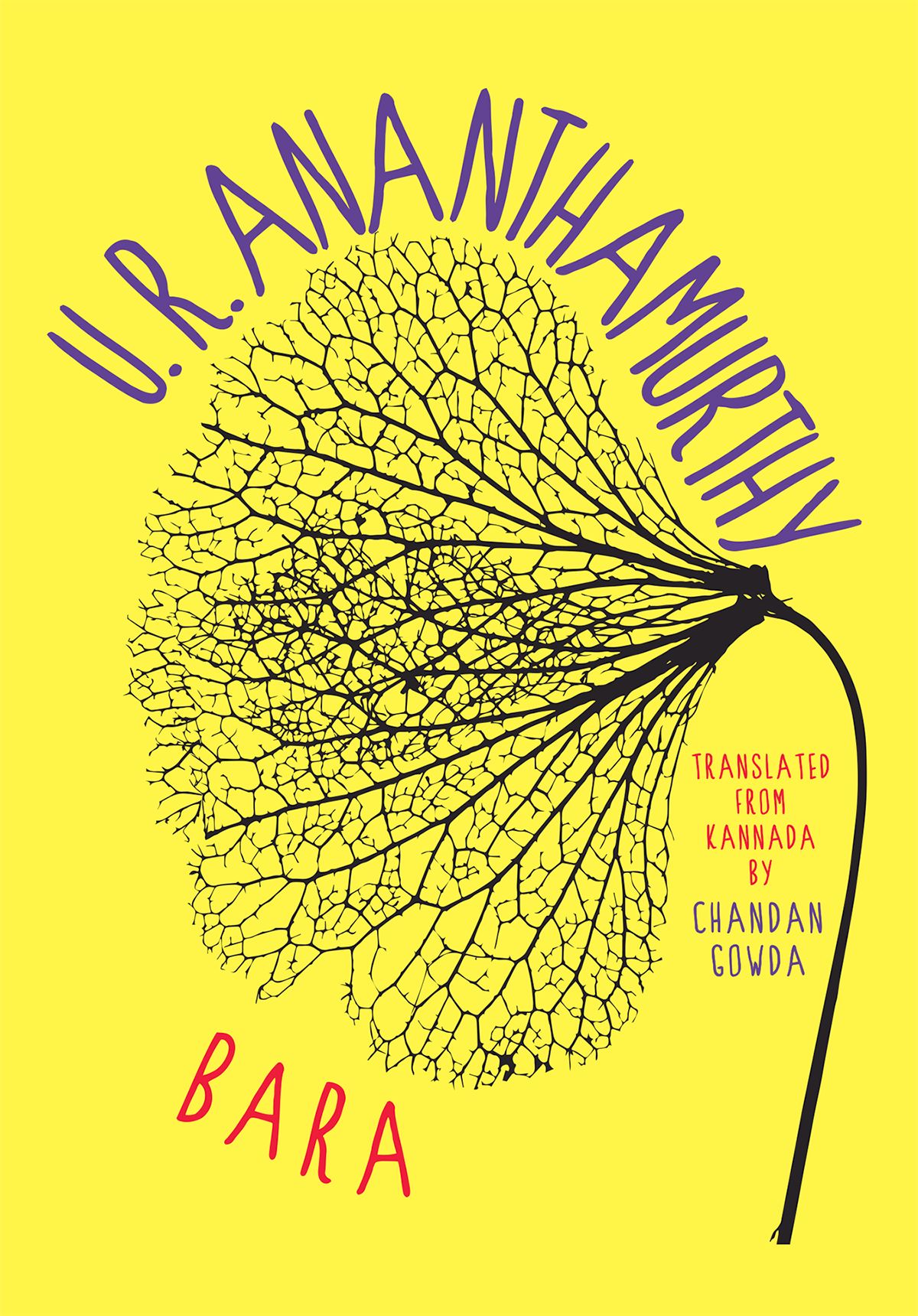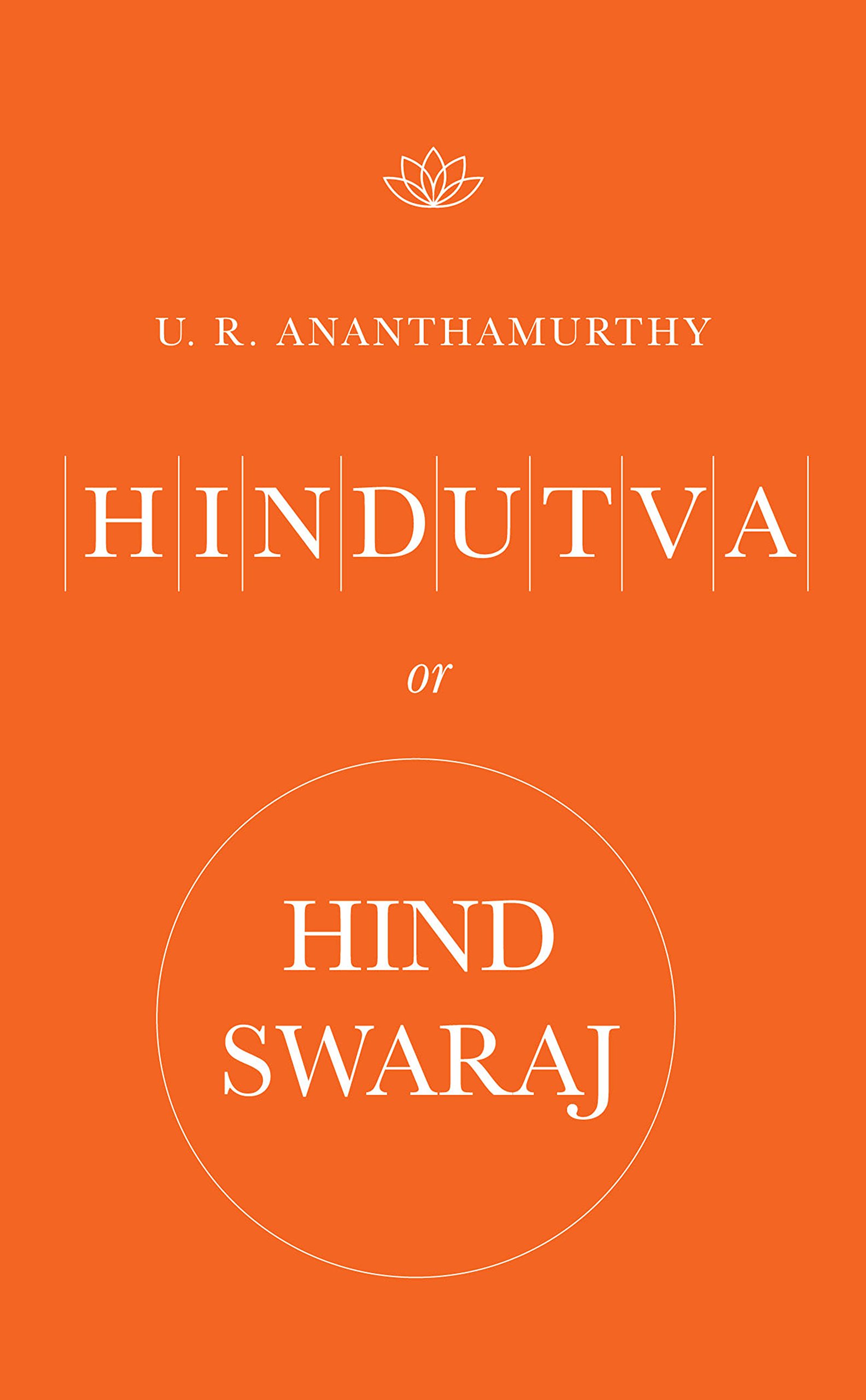
Ajji, can I have some water?… Just a few drops will do, Ajji.
With the searing sky above and the blistering earth below, like cactus the people of this parched terrain are determined to stay alive. Emaciated children scurry along, dejected farmers pawn their ploughs, weary women sleep on empty stomachs… Would those perishing now have died anyway? Or is hunger calling them away prematurely?
U.R. Ananthamurthy (1932–2014) was a distinguished Kannada writer and public intellectual. Samskara and Bharathipura are among his best known novels. He was honoured with the Jnanpith Award in 1994.
The Indian Cultural Forum is proud to publish an extract (text and pdf, bottom of page) from U.R. Ananthamurthy’s Bara, in a recent translation by Chandan Gowda published by the Oxford University Press (OUP), Delhi, in an edition which includes an interview with the author. One of Ananthamurthy’s last acts of commitment, typical of his engagement with cultural politics, was to support the formation of the Indian Writers’ Forum, a public trust to resist attacks on India’s secular, plural ethos. Whether it was the Emergency or the rise of Hindutva politics, Ananthamurthy epitomised the writer as involved citizen. He took sides, even when it meant creating a controversy on occasion. He was, most important, open to debate and discussion. We miss him today in an India divided by old and new fault lines. But we also have his work to read, learn from, and celebrate.

Bara was written during the Emergency and published in 1981. But it could have been written today, in 2016, in an India where an ethical life seems more and more difficult.
Set in mofussil North Karnataka, the novella traces a civil servant’s quest for an ethical life amid desperate social circumstances. Satisha, an idealistic IAS officer, wants to help the afflicted. But the logic of local realpolitik proves treacherous. Satisha is caught between politicians unwilling to declare the district drought-hit, and murky local realities – a religious outfit strives to protect cows; the desperate youth hold a deity responsible for the failure of the rains; and petty activists want only to secure their own interests. Through a series of vivid local encounters, Bara offers a powerful allegory of India’s political modernity: the tortuous realities of our democracy, as well as the political and moral dilemmas of the educated middle class. The story is a passionate invitation to examine our deeply held beliefs and think afresh. It was twice adapted as a film by M.S. Sathyu: in Kannada (National Award, 1982) and in Hindi, under the title Sookha (1983).
The translator of Bara, Chandan Gowda, teaches at the School of Development at the Azim Premji University in Bengaluru. He is working on a book on the cultural politics of development in old Mysore state.
 Also see here for an extract from Ananthamurthy’s Hindutva or Hind Swaraj (2014).
Also see here for an extract from Ananthamurthy’s Hindutva or Hind Swaraj (2014).
There was a sound. Satisha shut his book. Someone was knocking at the door he kept open to let visitors access him directly without going through office procedure. ‘Come in,’ he said.
‘Tell him, Sir. Please tell your peon that this door you wanted everyone to access is open to Bhimoji as well.’
Bhimoji’s affected manner was to make the peon aware that he was close to Satisha. Noticing it, Satisha spoke with restrained cordiality, ‘Please sit down, Mr Bhimoji’.
Bhimoji pushed back the thick glasses on his nose. With eyes beaming under bushy eyebrows, he asked sardonically, ‘Hasn’t our SP3 Saheb come to see you yet?’
Satisha was surprised that news of his order to search Gangadhara Swamy’s godown had already reached Bhimoji. Unwilling to yield to his inquisitiveness, Satisha replied, ‘But I wasn’t expecting to hear from him’.
‘Please forgive my impudence. Our district minister, Rudrappa, and his follower, our SP Saheb, consider Gangadhara Swamy the most innocent and incorruptible leader of this district.’
‘Will you share my lunch, Mr Bhimoji?’
‘Thanks. Gangadhara Swamy has distributed huliyanna4 and rice-lentil paayasa5 among the children of our Kalamma Street today. This is the politics the supporters of your government play against me.’
Satisha took out his lunch box from the desk drawer and opened it. Inside it were a couple of chapattis, an omelette, and slices of raw tomatoes. His friends from the Air Force had brought the tomatoes and eggs from either Bengaluru or Hyderabad. Slightly embarrassed, Satisha passed a chapatti, half an omelette, and a few tomato slices to Bhimoji.
‘The tomatoes and eggs are from Bengaluru,’ Bhimoji said with a wink while he ate. He was the president of the Raitha Sangha6 and the secretary of the Municipal Workers’ Union. He had received money from the chief minister (CM) to contest the previous election against Rudrappa and aroused much local curiosity. Satisha, who wished to grasp the district’s realities, found Bhimoji an appealing figure.
‘Mr Bhimoji, tell me, what can I do to get this district declared drought-affected?’
Bhimoji wiped his thick moustache with his shirtsleeve and laughed derisively. He then cajoled, ‘Sir, I know your bio-data. My grandfather was a tailor in your town. I’ve heard that our country’s famous leftist theoretician, Jayan, is your brother-in-law. I’ve read his much discussed article. What we now have is a progressive bourgeois government; it will have to destroy the feudalism in our country for its own good; all the leftists must therefore cooperate with this government—isn’t this his thesis? After I learnt that Jayan was your brother-in-law, I understood why you had joined the administrative service. Please don’t consider Bhimoji a frog in the well….’
Satisha felt angry that Bhimoji, who spent all his time in politics in a loose, wrinkled, wrongly buttoned shirt, had not taken him seriously. But he hid his anger. ‘You still haven’t answered me. You work with the people. I need your cooperation.’
‘I went over your bio-data for a reason. You have all the qualities of a socialist bureaucrat. Only the situation is premature.’
Bhimoji stood up laughing. His eyes counted the files—the source of Satisha’s salary—which lay on the desk.
‘You will get a phone call from Minister Rudrappa tonight, Sir. Wait and see. Let’s leave politics aside. My grandfather was a tailor. Your grandfather was a priest. He couldn’t wear a shirt. My grandfather didn’t sew as much as a button for him. Still he respected him greatly. My father was famous for making serge suits. His name was Narasinga Rao. When your father was to visit England, my father stitched his first serge suit. Later your father married into a different caste and never visited his town again. But five years ago he spent nearly ten thousand rupees to have a Subramanya temple built in the town. None of my relatives are in the town now…. I have respect for you. That’s why I came to tell you: Don’t hesitate when it’s time to arrest me.’
When Bhimoji spoke ironically, his glances were soft and coaxing; and, when irony was in his eyes, his words cajoled. Satisha felt uneasy to see his authority mocked at his very desk. Noticing this, Bhimoji lowered his voice, ‘If you had been as bad as the government, people would have revolted. The district would have benefited from it.’
Satisha felt encouraged that Bhimoji had spoken sincerely. ‘The leftists of this country are like you. They either exaggerate or believe that they can manipulate people and create a revolution. Considering our district’s situation, more gruel centres must be set up. The government must be urged to declare the district drought-affected….’
‘For that to happen, a political crisis that forces Minister Rudrappa to resign must emerge….’
‘No, Mr Bhimoji. You argue like a cynic. Work must commence. The farmers are selling off their oxen and ploughs. Jobs must be created for them….’
‘The CM wishes to do these things. But he doesn’t want to strengthen his rival’s hands.’
Bhimoji took off his glasses and, while wiping them, looked at Satisha hazily. Then he looked towards the door in an apparent hurry to leave. Satisha felt insulted. Not caring whether Bhimoji listened to him or not, he continued to speak as if it were his duty: ‘The people of the district, who have looked at the sky in vain, must be made to desire the abundant water that might run underground. You must have heard of the village, Ullur? It’s difficult to reach there even by a jeep. How can water be supplied to this area? I once saw an old man sitting on a well there. He came towards me. He couldn’t see clearly. Pointing to a spot he asked that a well be dug there. I arranged for a borewell to be dug at that very spot. I couldn’t believe it—it was a miracle, you see—the way water gushed out when hardly a few feet had been dug; only those who have seen it in the dry eyes of the people gathered there know the pleasure of the sight. Even now, water springs up twenty to thirty feet high all day. Even in this blazing drought. Water is supplied to thirty to forty villages from there. This place has become a pilgrimage site for villagers.’
Bhimoji, who had stood feigning interest in Satisha’s words, shook hands with him. ‘The differences between the chief minister and Rudrappa must get stronger. You can create more water springs in this area afterwards. But the initial work is left to small-time politicians like me.’ Bhimoji bowed respectfully with a namaskara and left.
3 Superintendent of police.
4 A dish comprising rice mixed with lentil stew.
5 A thick, liquid sweet made with jaggery and lentils.
6 A farmers’ organization founded in Karnataka in the mid-1970s.




